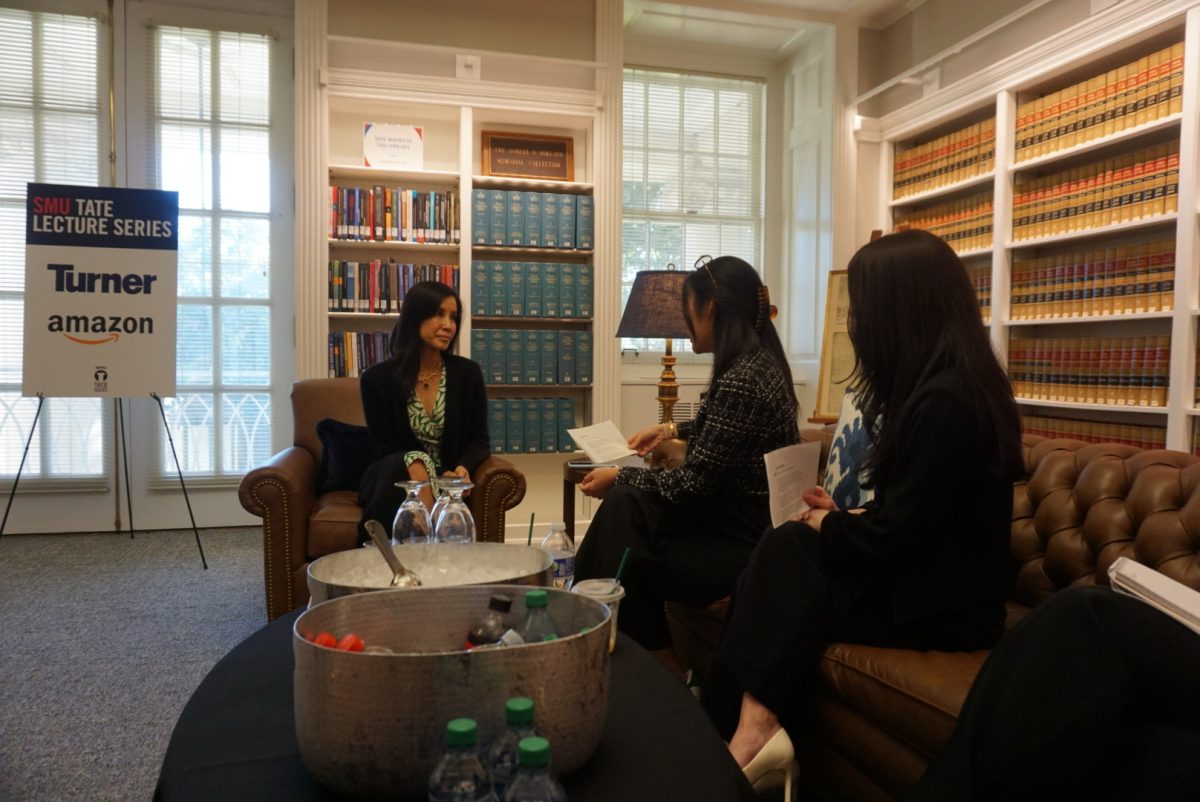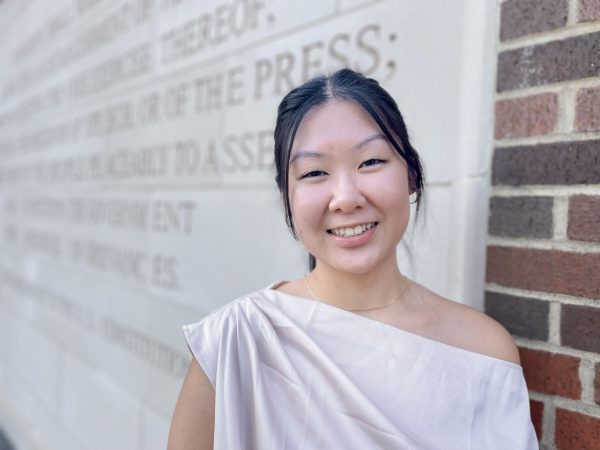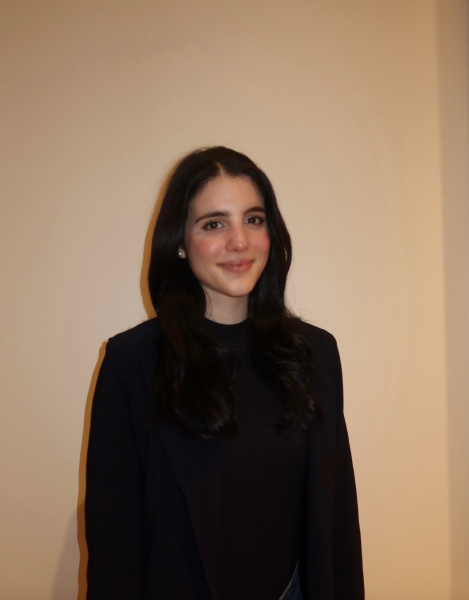Saki Teng, DC Video and Photo Editor: You’ve tackled subjects like addiction, immigration, and cultural diversity. You’ve also been able to tell the story firsthand by putting yourself in your source’s situation like in “Our America.” How do you approach balancing storytelling with the responsibility of raising awareness about these important issues?
Ling: It’s a great question, and I’ve had the luxury and the privilege of being able to do things a little differently in that I’ve worked in a long form for the past 20 years. That has allowed me, I think, to be able to be more nuanced in my reporting. I am not going out and trying to secure sound bites. We really have had the opportunity to allow our stories to really breathe. In doing so, I think that what we’ve tried to do is provide our audience with an experience. I think of myself as the vehicle through which people can experience different cultures, different environments, and different communities. Sometimes that experiential experience can be emotional. There can be a lot of big feelings that are procured from the experience, but I have tried hard to provide more of an experiential kind of opportunity for the audience, rather than coming in hard-charging and trying to tell the audience what to think or how to think. My hope is that after watching our shows, people will walk away just thinking differently than they did before.
Amara Asrawi, DC Arts and Life Editor: By covering Afghanistan at 21 years of age and going undercover for National Geographic’s “Explorer” series “Inside North Korea,” you have been in high-risk situations. As a journalist, what is the significance of highlighting the state of other countries, despite their conditions?
Ling: It is a great question, especially given what’s happening in the world today. I have so much respect for those journalists who are going into highly contentious, unpredictable situations and risking their lives to bear witness and tell the truth about what they’re seeing and experiencing. As someone who took far more risks in the younger part of my career than I do now, I will tell you that I was and still am committed to trying to tell the most accurate, truthful story and paint the most accurate picture of what is happening in the world and here in America.
It’s not so much that I made this attempt to put myself in harm’s way, but I go in and I report for a week or two weeks max. Then, I come home and put the story together, and communicate that story to the rest of the world. But the people who live under those circumstances have to do so every day, so if I can share a modicum of what their life experiences are like on the ground, that’s what I tried to do.
Asrawi: How do you build trust with the individuals you interview, especially when the subject matter may be sensitive or controversial?
Ling: I do my best to make it clear to the people that we are featuring the views expressed by them. We allow people to share their stories. That’s the thing about the work that I’ve done. While I may be the vehicle who’s taking you into environments that are unfamiliar, ultimately, what I’m really trying to do is introduce you to people, communities and cultures from whom you may not have heard before. Providing people with that opportunity on that platform is something that I’ve always tried to do. I like to think of my reporting as being really human-driven, because I think it’s really easy for us all to get caught up in rhetoric, especially in rhetoric from people who may be even very distant from the situation but who have very loud voices. I think it’s really imperative for all journalists to seek out credible sources to ensure that the people that you may be quoting or that you may be featuring are people who are bringing their life experiences to the story.
Teng: Speaking of life experiences, in 2009, you went to the Clinton administration to have Bill Clinton meet with Kim Jung II after your sister, Laura Ling, and her colleague, Euna Lee, were captured and imprisoned in North Korea. What was the breakthrough like using your voice and working around a communist country to help save your sister?
Ling: That would require a whole couple of hours to explain what that was like. It’s surreal to think about all that took place in 2009, and how a former president actually went to negotiate the release of my sister and her colleague. I think the thing that I think about most often with regard to that experience, ultimately, is how I’m so relieved and thankful my sister and her colleagues were able to come out safely. But, I think about how the story that they were trying to tell, ultimately wasn’t able to be told. She was trying to tell the story of North Korean refugees who escaped their horrific lives inside North Korea only to be sold into slavery or sold into the underbelly of the Chinese. That story was prevented from being told, and so that has made me more empathic than ever to want to tell stories and to promote the work of journalists who are continuing to take risks, to tell the truth, and to bear witness.
Teng: By beginning your career at 18, you were one of the youngest journalists on the field who was also Asian American. Could you share with us some challenges you may have faced during that time as someone who represented the community?
Ling: I mean, it was all challenging. I was so young, and I had this unique opportunity to work for a show that was seen in schools across the country called Channel One News. It was big in Texas. It’s funny because it was a 12-minute broadcast seen in schools, and it was very controversial because it had aired advertisements within the broadcast. Now, everyone has phones on them at all times. But I was young. I was only 18 when I started and so much of what I experienced was just sort of on the job training.
Channel One sent me into the world to cover stories and it really opened my eyes and broadened my horizons profoundly. It fueled a quest in me to want to continue bearing witness and communicating what I’m seeing to the rest of the world. It was all hard, but I’m so grateful that I had it. I think that if you look at the style of my reporting today, it’s not very different from the style that we employed at Channel One. Anderson Cooper was one of my colleagues at Channel One, and we still try really hard to center our reporting through a lens of humanity.
Asrawi: During your career, you’ve focused on many different issues, like women’s struggles during the war in the Democratic Republic of the Congo. What advice would you give to young journalists who want to cover communities with extreme needs?
Ling: There’s such a need for this kind of reporting and the industry is changing enormously. It’s going to be hard for you to have your organization send you out to cover so many of the stories that are happening in the world, particularly stories about the suffering of women and children if we’re not in a wartime situation. I would suggest that if this is your passion to tell these kinds of stories, if there’s a way for you to go and partner with some organizations and NGOs, go out and report yourself and bring those stories back.
Ling’s Tate Lecture ended early after an argument broke out in the crowd over a question about the Israel-Hamas conflict. Read the full story here.


















